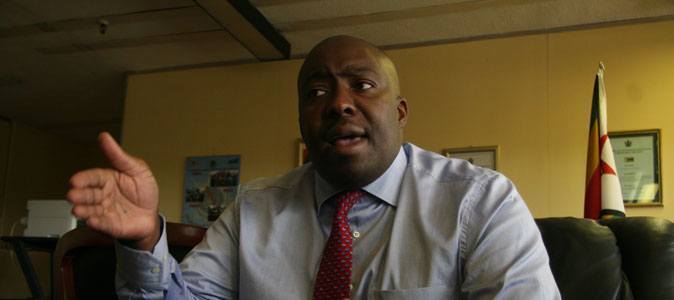
Environment, Water and Climate minister Saviour Kasukuwere has warned that his ministry will no longer entertain wetland abuse and called on urban councils to do their job and stop the allocation of land on the ecologically sensitive areas.
BY CHIPO MASARA
Kasukuwere issued the warning at the national stakeholder workshop on the sustainable use of wetlands held in Harare last week.
The workshop was convened by the Ministry of Environment, Water and Climate in partnership with the World Wildlife Fund (WWF) with the aim to initiate dialogue and joint action on the sustainable management of Zimbabwe’s wetlands.
Wetlands have for a long time been a subject of contention in Zimbabwe, as authorities have come under fire for allowing the diminishing of the waterlogged areas that should be providing useful services that include regulating floods, absorbing and purifying excess water, storing it and gradually releasing it into rivers and lakes during dry periods and ensuring the availability of water all year round.
According to the Environment ministry, Zimbabwe has a total of 1 117 wetlands covering 793 348 hectares, with 60% of them in communal and resettlement areas.
However, owing to competing sectoral interests and a high demand for land, a number of wetlands have been lost. Many have been built on while stream bank cultivation, litter dumping, veld fires, tree cutting and artisanal mining have also aided their degradation.
There has been an alarming rate of wetland abuse in Harare.
- Chamisa under fire over US$120K donation
- Mavhunga puts DeMbare into Chibuku quarterfinals
- Pension funds bet on Cabora Bassa oilfields
- Councils defy govt fire tender directive
Keep Reading
Experts said the rate of wetland destruction was bound to get worse in communal areas where there were no environmentalists fighting for their preservation and conservation.
Kasukuwere blamed the continued destruction of the ecosystems on council authorities, saying the onus was on the authorities to protect the ecologically sensitive areas.
“A wetland is a wetland but someone just goes ahead and tells someone to go ahead and build there. The one who has allocated the land must pay the price…enough is enough. We will not be entertaining anymore [wetland] abuse,” said Kasukuwere.
Experts that attended the workshop expressed fear that if degraded wetlands were not restored and properly managed, Zimbabwe faced a future where water would become a real scarcity.
Already, the country is reeling from the effects of a highly inadequate water supply, leaving many to seek for the precious liquid from unprotected sources, thus posing a health threat.
Lake Chivero — the main source of Harare’s drinking water — is believed to be heavily silted while the volume of water in it has greatly decreased as wetlands are no longer able to deposit much water into it.
The Environmental Management Act (CAP 20:27) Section 113 states that “the minister may declare any wetland to be an ecologically sensitive area and may impose limitations of development in or around such an area.”
While legislation that ensure the protection of wetlands is clearly spelt out on paper, its implementation has been a real challenge, something that has been blamed on policy inconsistencies and a lack of transparency and accountability by authorities at different levels.
Another bone of contention is the manner in which the Environment Impact Assessment (EIA) procedure is being conducted.
While all land developers are required to undergo assessment and start development only after the Environment Management Agency (EMA) has issued them with EIA certificates that give them the green light, many are believed to be ignoring the piece of legislation.
Furthermore, the EIA reports are not easily accessible with the public required to part with US$250 just to look at them. On May 3 2013, Zimbabwe acceded to the Ramsar Convention on Wetlands, an“intergovernmental treaty that provides the framework for national action and international cooperation for the conservation and wise use of wetlands and their resources”.
It saw seven of Zimbabwe’s wetlands: Monavale vlei, Victoria Falls National Park, Mana Pools National Park, Cleveland Dam, Chinhoyi Caves, Driefontein Grasslands and Lake Chivero being designated as Ramsar sites.
So far however, ratifying the treaty has not yet translated to better management of the country’s wetlands.
There is general consensus that the country’s wetlands will be safe only when they are evaluated and a monetary value placed on each of them and when there is harmonisation of policies and an enforcement of legislations.
There is a concerted push for the establishment of an environmental court that would prosecute environmental offenders.











